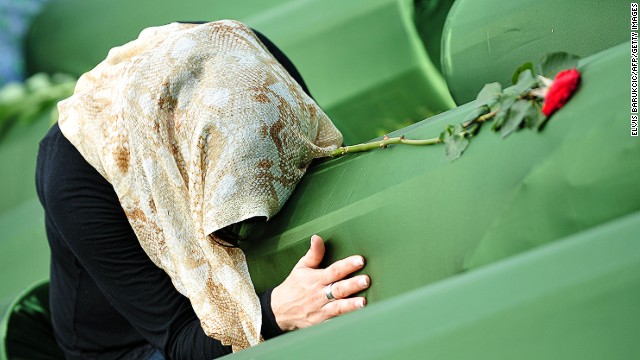By Ben Kopp
Impunity Watch Reporter, Europe
WARSAW, Poland – Poland experienced one of its largest demonstrations in recent years, in response to a lagging economy. Prime Minister Donald Tusk characterized the demonstration as an attempt to overthrow the government.

Since 10 September 2013, in response to labor law reform proposals, tens of thousands have marched in Warsaw. Organized by trade unions, the march included a variety of banners, flags, and trumpets. The city council suggested that demonstrators remained peaceful during the march, although some report that smoke grenades were thrown in Castle Square.
While Poland was the only European Union to avoid recession from the economic crisis’s start—and has experienced two decades of uninterrupted economic growth—demonstrators complain that Poland remains behind Western Europe. As the Eurozone struggled through a recession in the first fiscal quarter of 2013, Poland’s economic growth slowed to 0.1%.
“One has to protest because it is getting worse,” said a young woman named Ola. “Compared to Western states we are a sinking ship, despite the fact that we are in the center of Europe and we have the prerequisites to become a European powerhouse.”
In February 2013, the unemployment rate hit a six-year high of 14.4%. Demonstrators demanded that the Polish government increase the minimum wage, provide greater job security, and return the retirement age to 65 for men and 60 for women. Recently, a new law lifted the retirement age to 67 for everyone.
Several also called for Tusk to resign for his failure to improve unemployment rates. Unions add that Tusk refuses to hear their demands or engage in dialogue. While Tusk is Poland’s longest-serving prime minister since communism fell in 1989, his coalition’s popularity is at its lowest level since he took office in 2007.
“We want the departure of Donald Tusk. This is the only way to change social policy in Poland,” Marek Lewandowski, spokesman for the Polish trade union federation Solidarity, told the AFP news agency.
Among the 100,000-120,000 demonstrators, reports suggest that the political right and left joined together in their demands.
“The government gets its last warning today. If it draws no conclusions, we will block the whole country, all roads and highways,” Jan Guz, leader of the OPZZ union told demonstrators.
Marek Duda, the leader of the conservative Solidarity Union said, “We’re becoming slaves in our own country.”
While Tusk’s Civic Platform party waits to compete in the 2015 parliamentary election, regional governments and the European Parliament will hold elections in 2014.
In recent weeks, three of Tusk’s Members of Parliament have resigned. Lawmaker Jacek Zalek, who resigned on 12 September 2013, told reporters the “protests were a sign that we were unable to rise to the challenges that were put before us by Poles.”
Tusk contends that his revised 2013 budget, which passed through parliament, “proves that the government’s majority is stable.”
Peaceful protests provide leaders an opportunity to address public problems, yet can only remain peaceful where the people are heard. Absent an ear, voices become acts, which create arrests and, possibly, impunity.
For further information, please see:
Radio Free Europe/Radio Liberty – Poles Stage Huge Antigovernment Protest in Warsaw – September 15, 2013
Al Jazeera – Thousands Protest against Polish Government – September 14, 2013
BBC News – Mass Anti-Government March in Poland against Reform – September 14, 2013
Reuters – Tens of Thousands Join March for Jobs in Poland – September 14, 2013
Washington Post – 100,000 Polish Unionists Protest Government Labor Policies in Warsaw March, Threaten to Strike – September 14, 2013
The Guardian – Poland Must Rediscover the True Meaning of Solidarity – September 13, 2013

